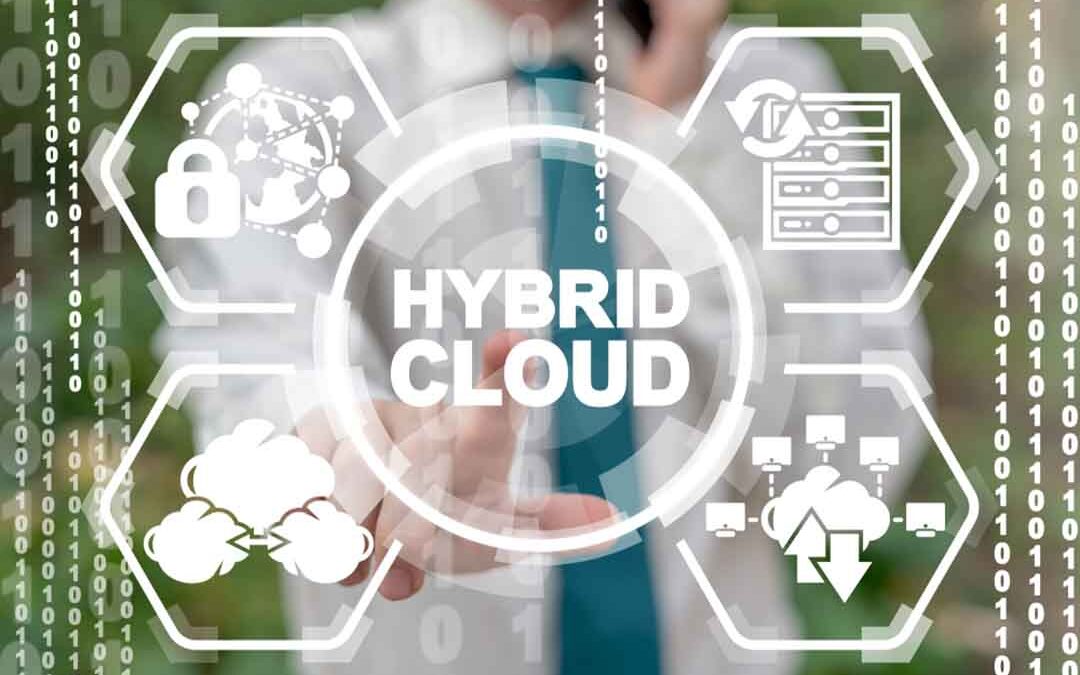Organizations today face the complex task of balancing the need for robust, scalable IT solutions with the necessity of leveraging existing on-premise infrastructure. Many businesses use hybrid cloud solutions to strike this balance, seamlessly integrating private and public cloud environments. The allure of the hybrid cloud lies in its promise to provide the best of both worlds: the flexibility of public cloud resources and the security and control of private cloud systems. But is a hybrid cloud the right choice for your organization?
What is Hybrid Cloud?
A hybrid cloud is an IT architecture that incorporates some degree of workload portability, orchestration, and management across two or more environments, including at least one private and one public cloud. This setup allows data and applications to move between private and public clouds as business needs and costs dictate, providing greater flexibility and more deployment options. By using a hybrid cloud, organizations can optimize their existing infrastructure, increase efficiency, and meet varying business demands more effectively.
Common Components of Hybrid Cloud
On Premises Data Center
Organizations can choose to deploy critical workloads from their on premises data center, which may include some private cloud capability. It ensures that enterprises have direct control over their local infrastructure, applications, and sensitive data, especially if required by privacy laws and industry regulations.
Public Cloud
Applications can be deployed to a designated data center through the support of a public cloud provider. With public clouds, organizations can take advantage of different service offerings from each cloud provider. Typically, public clouds are preferred for managing less essential workloads or short-term deployments.
PaaS Providers
Cloud providers that offer platform-as-a-service (PaaS) allow organizations to access essential application development and management resources, such as hardware, software, and infrastructure. The provider handles the management, while organizations simply log in through an interface to utilize them.
SaaS Providers
Organizations can engage software-as-a-service (SaaS) providers to deploy important software solutions in the cloud, such as accounting or HR software development toolkits.
Network Connection
While you don’t necessarily need an internet connection to access a hybrid cloud, an organization will need network connectivity between their private and public cloud environments to access the hybrid cloud.
5 Benefits of Hybrid Cloud
Cost Efficiency
A hybrid cloud allows organizations to optimize costs by utilizing public cloud resources for non-sensitive, high-volume workloads while keeping critical applications and data on-premise or in a private cloud. This mix can result in significant cost savings.
Scalability and Flexibility
With a hybrid cloud, businesses can scale resources up or down based on demand, providing the flexibility to handle peak loads without investing in additional on-premise infrastructure. This adaptability helps manage costs and improve performance.
Improved Business Continuity
Hybrid cloud solutions enhance business continuity by providing robust disaster recovery options. Data and applications can be replicated across multiple environments, ensuring operations can continue even if one environment fails.
Enhanced Security
Organizations can keep sensitive data and critical workloads in private clouds or on-premises, where they have more control over security measures. Meanwhile, less sensitive data can leverage public clouds’ scalability and cost benefits.
Increased Agility
Hybrid cloud enables faster deployment of applications and services by utilizing the most suitable environment for each workload. This agility can accelerate innovation and time-to-market for new products and services.
4 Hybrid Cloud Challenges
Compatibility
Ensuring that various cloud environments and on-premise systems work seamlessly can be challenging. Compatibility issues can arise from differences in architectures, application programming interfaces (APIs), and management tools, complicating integration efforts.
Data Management
Managing data across different environments requires careful planning and robust solutions to ensure consistency, security, and accessibility. Data synchronization, replication, and migration can be complex and resource-intensive tasks.
Internet Dependence
Hybrid cloud solutions often rely heavily on internet connectivity for data transfer and application performance. Disruption in internet service may impact the availability and performance of cloud resources, leading to potential downtime or performance degradation.
Technical Skills of IT Personnel
Implementing and managing a hybrid cloud environment demands a specialized skill set. IT personnel must be proficient in cloud technologies, security protocols, and network management to oversee and optimize hybrid cloud infrastructure effectively. This need for advanced skills can pose a challenge for organizations, especially those with limited IT resources.
Discover Managed Services for Hybrid Cloud with Cynergy!
Hybrid cloud solutions can optimize an enterprise’s business operations efficiently and effectively. As a leading provider of cloud-based IT infrastructure solutions, Cynergy Technology can tailor a hybrid cloud strategy to suit your organization’s unique business needs. With over forty-two years of experience, Cynergy’s managed services provide ongoing management for your entire IT infrastructure. From monitoring and patch management to security and backup services, our team of IT experts can improve agility while taking the burden of infrastructure operations off your hands so you can get back to doing what you do best—running your business. Contact us for a free consultation and elevate your business operations!







